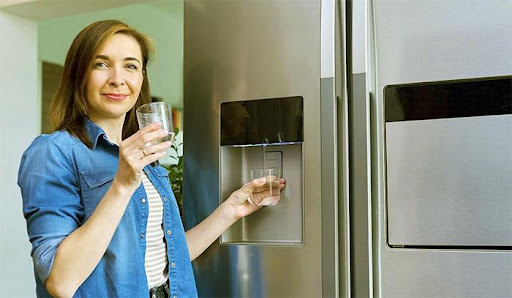Troubleshooting Refrigerator Water Filters – Common Issues Resolved
Leaking and drips, bad tastes, or bad and inconsistent flow: water filters do occasionally throw up the odd challenge. Luckily, nearly all problems you might find with your fridge filter and water dispenser system are easily dealt with.
Below, we list a few of the major fridge filter problems folks face and show you how to easily troubleshoot your way to a solution. Take a look at the main causes of problems for owners of fridges with water filters inside, and see if these tips can help you solve your water woes.
Leaking or Dripping from Filter
Check your water filter is properly fitted. If your filter is not properly aligned or sitting in the filter housing correctly, water can leak out and around the filter. This can be an issue when using the water dispenser, or even worse, can cause a slow drip even when the dispenser is not in use.
It is important to consult your fridge’s manual, as well as the instructions on the replacement filter itself, before installing the filter. Careful attention should also be paid to the model of your fridge, to make sure you are attempting to fit the correct filter.
In some instances quite similar fridges can require very different filter types, so be sure to check you have purchased the correct part. Most filter brands will list the exact fridges they can be fitted to on the packaging.
Make sure the water filter is locked in tight without any dirt, or anything else obstructing the seal or keeping it from closing properly. If the filter isn’t clicked in completely this may be the reason for a leak, or you may just have a faulty filter that needs replacing.
No Water Flow
If there is no water running through your system, there are two main culprits. The first is the most obvious and the easiest to deal with – check that your mains connection is switched on, or if you use a fridge with a water tub, that the tub is full. This might seem obvious, but you’d be surprised how often we see it.
If the above is covered and no change, then this might indicate a more serious blockage. Very often the water supply is housed near the freezer – which, predictably, can ice up the pipes. Try turning your freezer’s temp up slightly to see if this improves things.
Freezing water pipes is a design flaw in some fridges, but allowing the pipes to defrost either by reducing the temperature or by defrosting the freezer itself, giving the pipes time to push that ice out, can solve this issue.
Inconsistent Water Flow
When you fit each new filter, air can become trapped in the water pipes, meaning that your water will flow in fits and starts as the air is released. Luckily, this is easy to solve – all you need is a large container and a bit of patience.
Place the container under the outlet, depress, and then release the dispenser lever in 5-second intervals. After a few minutes of this, you should have consistent water flow. If you still have inconsistent flow after trialing this method, you may need to contact a fridge repairman or plumber to work out the issue.
Bad Taste / Smell
If your water tastes or smells a bit off, there could be a number of reasons why this is happening. Before you fit a filter, it’s a good idea to flush it through with water. Sometimes loose carbon can be present, which will enter your water and affect the taste.
Most likely though, a bad taste is a sign that your filter needs replacing. Carbon filters work by absorbing contaminants in water and storing them away from harm. However, when carbon becomes saturated, it will start to release the contaminants back into the water which passes through. This is why it’s crucial to replace your water filter at least once every six months.
Change your filter regularly and it’s unlikely you’ll have to deal with this issue. If you do leave your filter in for too long, it’s possible that it will go moldy inside, which is another thing that could affect the smell and taste of your water. Fortunately, however, you should notice this change in the water before it becomes a hazard to your health.












